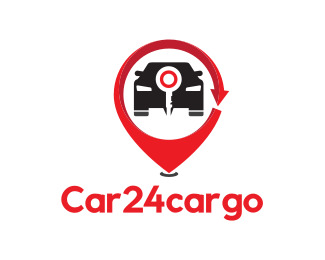Relocating to a new city or state is a significant life change, and when it comes to moving across the country, the logistics can be even more daunting. One of the most challenging aspects of a long-distance move is figuring out how to transport your car. Whether you’re driving cross-country yourself or hiring a car transport service, making the right choice is crucial. This guide will walk you through everything you need to know about car transport for relocations.
Why Consider Car Transport Services?
Moving your vehicle over a long distance can be stressful and time-consuming. Instead of racking up thousands of miles on your car or spending days behind the wheel, you can opt for a car transport service that handles the heavy lifting. Here’s why using a car transport service makes sense:
Convenience: Transporting your car means one less task to worry about during your move. Professionals take care of the logistics, so you can focus on settling into your new home.
Saves Time: Instead of spending days driving, you can fly to your destination and have your car delivered to your doorstep.
Reduces Wear and Tear: Long-distance driving can put significant strain on your car, causing unnecessary wear and tear. Transporting your vehicle helps keep it in excellent condition.
Cost-Effective: When you factor in fuel, food, lodging, and potential repairs from a long journey, using a car transport service might be more economical.
Types of Car Transport Services
There are two main types of car transport services to consider:
Open Transport: This is the most common and affordable option. Your car is transported on an open carrier along with other vehicles. While it’s cost-effective, your car is exposed to weather and road debris.
Enclosed Transport: This option offers extra protection by transporting your car in a covered trailer. It’s ideal for luxury, classic, or high-value vehicles but comes at a higher price.
How to Choose the Right Car Transport Company
With numerous car transport companies available, it’s crucial to select a reliable one. Here are some tips to help you choose:
Research and Compare: Start by researching different companies and comparing their services, prices, and reviews. Look for companies with positive customer feedback and a strong reputation.
Check Licensing and Insurance: Ensure the company is licensed and offers insurance coverage. This protects your vehicle in case of any damages during transit.
Ask for Quotes: Get quotes from multiple companies and compare their pricing. Remember, the cheapest option may not always be the best.
Review the Contract: Carefully read the contract and understand the terms, especially regarding delivery timelines, insurance coverage, and cancellation policies.
Preparing Your Car for Transport
To ensure a smooth car transport experience, follow these steps to prepare your vehicle:
- Clean Your Car: Wash your car and take photos to document its condition before shipping. This will be helpful in case of any disputes about damages.
- Remove Personal Items: Transport companies are not responsible for items left in your car, so remove all personal belongings.
- Check for Leaks: Inspect your car for any fluid leaks and address them before transport.
- Ensure Low Fuel: Keep your gas tank at about a quarter full. This reduces weight and makes it safer for transport.
- Disable Alarms: Turn off any alarm systems to avoid unnecessary issues during transit.
What to Expect During the Transport Process
Once you’ve chosen a car transport company and prepared your vehicle, here’s what to expect:
Pick-Up: The transport company will arrange a time to pick up your car, either from your home or a nearby location.
Transit: Depending on the distance, your car may take several days to a couple of weeks to reach its destination. The company should provide tracking updates.
Delivery: Upon arrival, inspect your car thoroughly before signing the delivery paperwork. If you notice any damage, report it immediately.
Cost of Car Transport Services
The cost of transporting your car depends on various factors, including:
- Distance: Longer distances generally mean higher costs.
- Type of Transport: Enclosed transport is more expensive than open transport.
- Vehicle Size: Larger and heavier vehicles cost more to transport.
- Season: Demand is higher during summer and holidays, leading to increased prices.
- Delivery Speed: Expedited delivery costs more but ensures faster arrival.
- Average costs range from $500 to $1,500, depending on the factors mentioned above. It’s always a good idea to get multiple quotes to find the best deal.
Tips for a Smooth Car Transport Experience
- Book Early: Reserve your car transport service at least 2–4 weeks in advance, especially if you’re moving during peak seasons.
- Stay Informed: Keep in touch with the transport company and ask for updates.
- Choose the Right Delivery Option: Door-to-door service offers the most convenience, but terminal-to-terminal is more cost-effective.
Final Thoughts
Transporting your car across the country can be a hassle-free experience if you choose the right service and take the necessary precautions. Whether you opt for open or enclosed transport, remember to research thoroughly, prepare your vehicle, and stay informed throughout the process. By doing so, you’ll ensure your car arrives safely and on time, allowing you to focus on settling into your new home.
Moving can be stressful, but with the right car transport service, you can make one aspect of your relocation easier. Happy moving!


Recent Comments